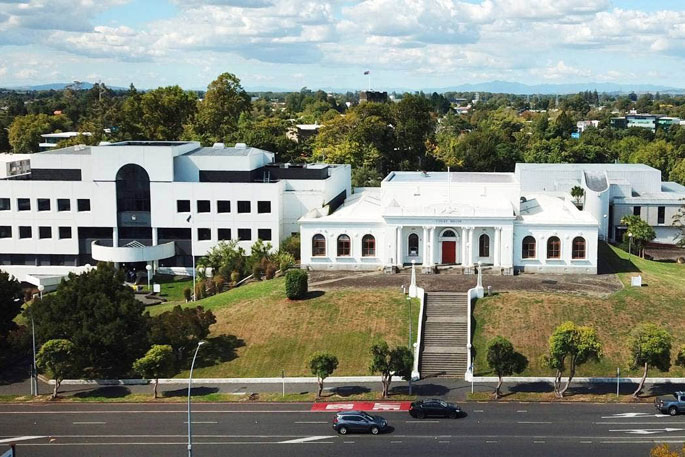A woman who was raped on a Raglan walking track blames herself for the fact the same man targeted another tourist in a Paeroa cemetery 14 years later.
Darryl Grant Bridgeman was sentenced to seven years and two months in prison in the Hamilton High Court on Monday, after earlier pleading guilty to a charge of sexual violation by rape.
The jail term relates to a 2006 rape on a Raglan walking track, which left the victim so distressed that she left New Zealand.
Bridgeman is a serving prisoner, having been jailed for nine years for second rape in 2020, and now faces a cumulative 16 years and two months in jail.
At Monday's sentencing, the court heard he'd followed the 42-year-old European tourist up the track of a scenic Raglan walk in December 2006, before sexually assaulting and raping her, having grabbed a knife from his belt.
She said, in her impact statement, that she blamed herself for not getting Bridgeman's number plate, meaning he wasn't located and another woman suffered similarly.
Stuff previously reported that Bridgeman raped a 24-year-old woman in February, 2020. He'd lured the young tourist and hitchhiker into his car on the outskirts of Hamilton by claiming to be a businessman.
He later drove her to an isolated cemetery in the Hauraki Plains, where he raped and violated her before driving off.
DNA analysis from that rape linked Bridgeman to his 2006 Raglan offending.
Bridgeman sat through most of Monday's three-hour sentencing with his head bowed, eyes fixed on the ground and head in his hands.
Bridgeman first saw his Raglan victim in the car park of a scenic walk on December 15, 2006, Justice Christine Gordon said in court.
He followed and passed her, and the pair made brief conversation. She walked behind him for a while before becoming uneasy.
When she turned to walk back to the car park, Bridgeman threw her to the ground.
He put his hand over her mouth, told her not to scream, and grabbed a knife from his belt before raping her.
Bridgeman then took $250 from her wallet before leaving her on the path.
In a victim impact statement, the woman said that, 15 years later, she's still dealing with long-term psychological effects.
The woman left the country the next morning, and said she did not feel safe until she was at the airport amongst crowds of people.
'She felt used and thrown away. She said she often thought of suicide and had sleepless nights and nightmares for years.”
Justice Gordon said the incident was violent and degrading.
'The victim was travelling alone, and should have been safe in this country.”
There was a lack of consistency between Bridgeman's accounts of what happened, and of his childhood.
He said twice that he was intoxicated and did not remember the offending. Another time he said it was consensual, Justice Gordon said.
Bridgeman also told four different stories about his childhood, including different accounts of a car crash that left him with a brain injury. However, there were no police or hospital records.
Justice Gordon said general themes appeared throughout, including loss, sexual and physical assault, and instability.
She was satisfied this trauma was linked to his offending, and gave a discount of 10 per cent on his sentence.
However, he showed a pattern of offending, she said.
Crown prosecutor Jacinda Hamilton argued for preventive detention, where the offender would be managed by Corrections for the rest of his life.
Despite believing Bridgeman was at high risk of reoffending, Justice Gordon instead sentenced him to seven years and two months in jail, to be added to his current sentence.
She also imposed a non-parole period of 50 per cent of his sentence.



0 comments
Leave a Comment
You must be logged in to make a comment.